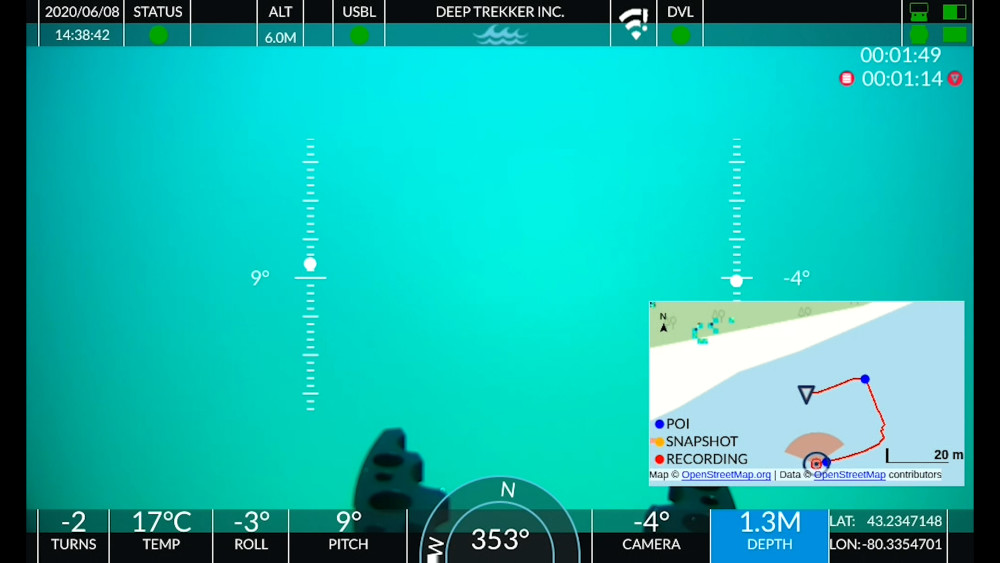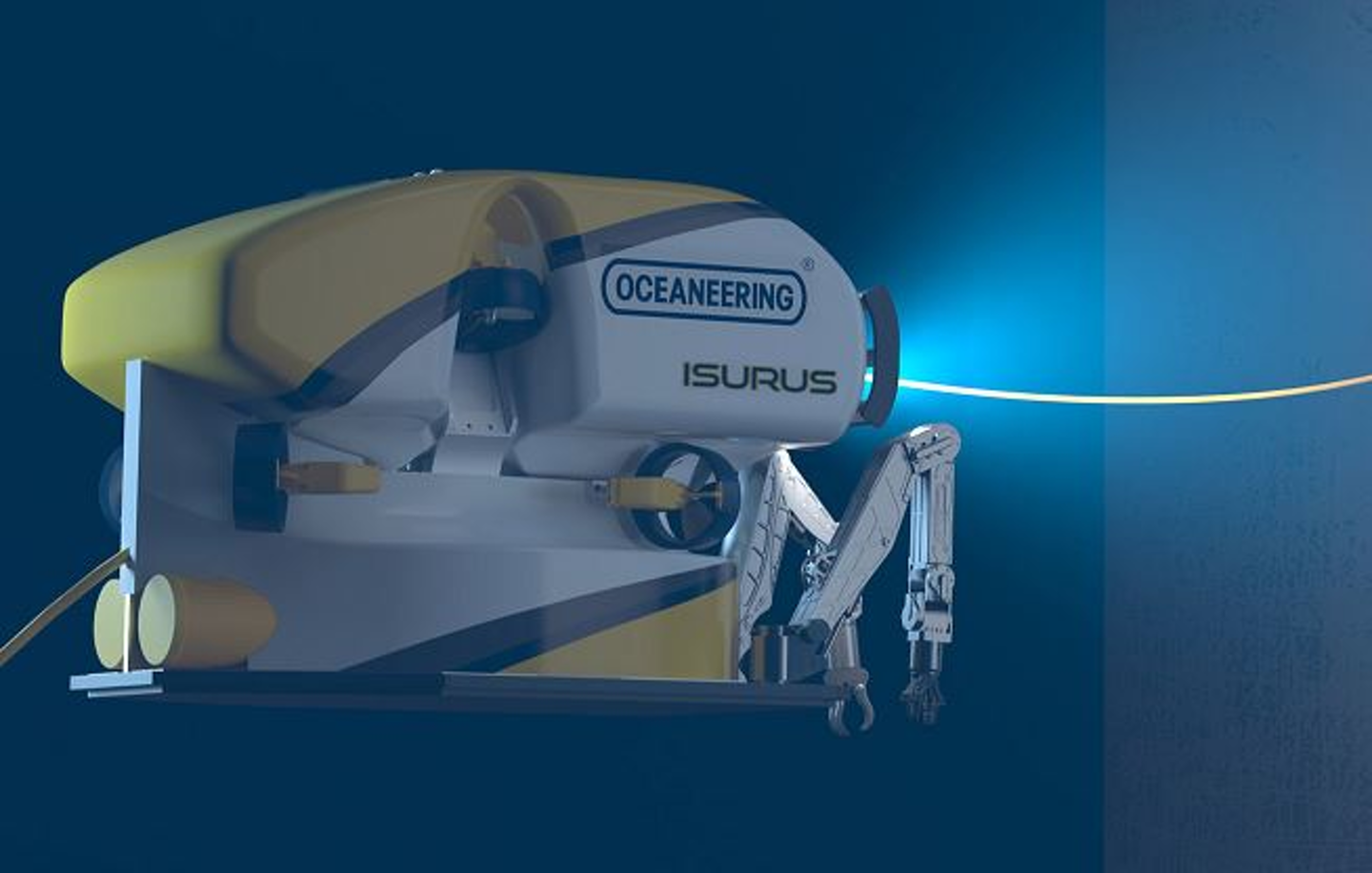Home › Forums › ROV › ROV Industry Vocational Training › Train at an ROV school or not?
- This topic has 43 replies, 22 voices, and was last updated 14 years, 12 months ago by
simulation11.
-
AuthorPosts
-
January 27, 2009 at 9:16 am #21188
Ray Shields
ParticipantMrSilent
… I don’t have the money for the course at Fort William so going in to debt for a course which don’t gaurantee a job isn’t feesable at this time. But if it did guarantee a job then I’d be on the next one.
If you listen to the blurb from some of the training schools that is exactly what they want you to believe.
But it’s their job to make money. Unfortunately this sometimes encourages people to go into debt for no good reason.
January 28, 2009 at 6:08 pm #21189Ewan McKen
ParticipantFW is almost certainly the best out of the bunch since a major player sends all their trainees there.
A Major Player also sends all of their trainees to Global Marine, Portland, Dorset.
Regards,
I5.January 29, 2009 at 7:29 am #21190MrSilent
ParticipantFW is almost certainly the best out of the bunch since a major player sends all their trainees there.
A Major Player also sends all of their trainees to Global Marine, Portland, Dorset.
Regards,
I5.Good for them
January 29, 2009 at 11:37 am #21191Bristar
ParticipantFW is almost certainly the best out of the bunch since a major player sends all their trainees there.
A Major Player also sends all of their trainees to Global Marine, Portland, Dorset.
Regards,
I5.A good friend of mine did their course at FW, I did mine at Portland. We worked out that the difference was that FW was more pilot orientated she got about 25 hours, Portland was more tech based I got around 12… she didn’t even do fibres hands on let alone an armoured mechanical termination.
Anyway… another major player sends their guys to MTCS
Sonsub Saipem, & Fugro – Global Marine, Portland
Subsea 7 – MTCS
Not sure who send their guys to Fort William?So they must all be pretty good in one way or another, and the decision of the major players are probably based on cost, length of course, and course content which must be pretty similar if it’s taught to a IMCA syllabus. Besides I’m sure the training establishments change their courses to suit the requirements of the bigger companies and so an individual wouldn’t get the same training from the same place.
January 29, 2009 at 7:18 pm #21192Ray Shields
ParticipantFW is almost certainly the best out of the bunch since a major player sends all their trainees there.
A Major Player also sends all of their trainees to Global Marine, Portland, Dorset.
Regards,
I5.… the difference was that FW was more pilot orientated she got about 25 hours, Portland was more tech based I got around 12
Anyway… another major player sends their guys to MTCS
Sonsub Saipem, & Fugro – Global Marine, Portland.
I’m quite sure people leave Fort William with only 10 hours of piloting their Falcon.
Fugro (Aberdeen, Middle East, Brazil at least) send their trainees to Fort William for a basic course before starting their training within the compaines competency scheme.
January 30, 2009 at 1:10 am #21193Wade Berglund
ParticipantI did not at first take the training course at FW. I was hired by FUGRO based on my experience from the Canadian Navy/RN. I have over 24 yrs experience in Electronics (Sonar/Navigation) and basics in hydraulics.
After I was hired by FUGRO I did 2 months probationary period working in the workshop, then I was put on the FW training course. The course was just over 3 weeks long, and we worked on the weekends as well.
We were promised that we would do Fibre Optics (I already had this training from the Navy). But we did not get any training in fibre optics.
We had 8 guys on our course all FUGRO staff, some guys had over 200 hrs of previous flying and didn’t really need the course.
I feel that the FW course was worthwhile since it gave us the BASICS in piloting. We all achieved 9.5 to 10 hrs of flying. We learned to work closely with the in house diver course. We also learned about video and voice annotation and dubbing of highlights. The use of Sonar in limited visibility and inspection/sector searches/bottom surveys.
The course was rushed, because one of the instructors left the school and FW was running 4 courses during the 3 weeks we were there. We got very limited hands on technical work on the SEAEYE FALCON. We changed a bulb, removed a thruster, and adjusted the camera. Very basic.
Over all I felt the course was good, it allowed me to get a feel for piloting, scanning the instruments, doing pre-and post dive checks, launch and recovery, filling out logs, doing voice annotation, and video dubbing.
It gave me a better feel for what was needed off shore so then I would not look like a complete numpty. I still have allot to learn and will continue learning, even if I make supervisor in the next decade or later.
I did find out that I had a knack for flying. Probably based on my experience as a helmsman on a submarine.
January 30, 2009 at 2:43 pm #21194Ray Shields
ParticipantGood to hear you got something from the course. When did you do it? They have only ever given a very basic talk about Fibres there I believe, never actually done any. I used to do the fibre optic training in Aberdeen for trainees and others but aint been asked to do one for a while now so I assume they have someone else doing them or have given all our training stuff to FW
Having done the course, do you think that someone could come out of that and really be classed as a Pilot Tech 2? As this is allegedly what people are when they leave the course, complete with shiny bit of paper.
January 30, 2009 at 3:44 pm #21195Bristar
ParticipantHaving done the course, do you think that someone could come out of that and really be classed as a Pilot Tech 2? As this is allegedly what people are when they leave the course, complete with shiny bit of paper.
But Pilot Tech 2 is just another way of saying trainee… it’s only in the organisations that have added extra levels such as Pilot Tech 3 & 4 where this gets confused. Most organisations have PT2 as the trainee, then PT1 once experienced…
January 30, 2009 at 7:40 pm #21196mind-when-this-was-fields
ParticipantP/T 2? its just a name so the company can put a trainee out as a pilot tech which is basically taking the p*iss lol
January 31, 2009 at 1:24 am #21197Wade Berglund
ParticipantRayshields
Hey mate, yes I did get something out of the course. I did the course last May-June.
You know the old saying"never look a gift horse in the mouth". Well I wanted to get the best out of the coarse and make it worth my while.
When I was in the Navy I had a total of over 3-4 yrs of Formal technical training (electronic academics) coupled with PC repair, fibre optics, and actual hands on with test equipment and troubleshooting/faultfinding techniques.
For example/comparison when doing Transistor theory in the Navy we took weeks of theory, mathematical calculations, assignments, then went to labs and conducted experiments to analyze the data/theory, then we had to build conclusions, and apply this knowledge to practical applications.
However, at FW we did death by power point, theory was explained to us in minutes, no hands on, no lab work, minimal mathematics, no test equipment. The subject matter was supposed to be taught in a week but since there was a shortage of staff, we had to double up with another class and the content was covered in days. For me it was a refresher, for some guys that did not have ANY electronic background, they were lost and would not be able to show to anyone what a diode, resistor, transistor of capacitor was like on a circuit board. We then covered hydraulics in a few days as well, which was supposed to be a week. Again due to lack of instructors it was rushed.To be fair, the course was good in a sense it allowed me to understand terminology, use of an ROV and it got me flying an eyeball ROV with excellent instructors and tasks.
As for being awarded PT2 qualifications, it is with the ROV log book and IMCA "guidelines" that allow that to take place……
With only IMCA recognized guidelines, having only 10 hrs of flying (with an eyeball system), a bare wee basic of understanding of electronics or hydraulics it does not make a person an experienced PT. It just gives you the basic qualification or starting off point.
I realize that and even though I have a very sound background in Electronics/electrics with basic knowledge of hydraulics (from submarines). I have allot to learn and will continue to learn.
The FW training allows a person who has a sound (technical) background to get a better chance of getting into the business of being an ROV P/T than the average Joe. Plus the FWUTC has an excellent grapevine of support and provides the new trainees with possible leads in getting into the business.
I hope that this helps.
Cheers
February 18, 2009 at 6:01 pm #21198James McLauchlan
ParticipantAbusive comments and associated account(s) deleted.
Please be advised that anyone posting abusive content, or directing abusive remarks at any other member, will have their account deleted without warning.
This is not an unfair approach as there are enough warnings posted around the Forum on this matter.
February 18, 2009 at 9:57 pm #21199Rovned
ParticipantThis subject has been done to death in the past (in my opinion) but I just heard that one of the major players has advised its’ trainees and P/T 3s to look for other work as they cannot guarantee them all employment in the foreseeable future.
A course was a possible bonus on a technical CV but the offshore industry is closing down rapidly as a reaction to the oil price. Now is not a good time to be trying to get into ROV as a trainee.
Basically the oil companies are not going to go to the expense of dragging something out of the ground to sell at 40-something $/ barrel if they can leave it there for a couple of years and get well over 100-something $/ barrel.
This might seem like I’m stating the obvious but it’s something that I never even considered a factor until I was in the game.
Save your money, get some qualifications if necessary and wait for the next boom in a couple of years time. It will come and there will be many trainee openings, but the oil price is, unfortunately, God.
February 18, 2009 at 10:20 pm #21200bt
Participantwhich big player????
May 12, 2009 at 7:22 am #21201simulation11
ParticipantIn my opinion there is no value in ROV training schools and I agree with the viewpoint that these schools are placing their own business interests first. For years the diving industry has been littered with people who despite their ability (or lack of) have been persuaded to invest time and money in training courses, the carrot being big bucks and long term employment. Most of them end up with nothing more than a depleted bank balance and the realisation that employment opportunities are very limited.
The ROV industry is no different so wanabe pilots beware
Technical ability is a prerequisite, and piloting skills are best developed on the job. If you are technically qualified, invest your cash/time on a survival course and submit a decent CV to prospective employers.
😯
That’s a good idea. I totally agree with u. 😀
-
AuthorPosts
- You must be logged in to reply to this topic.



